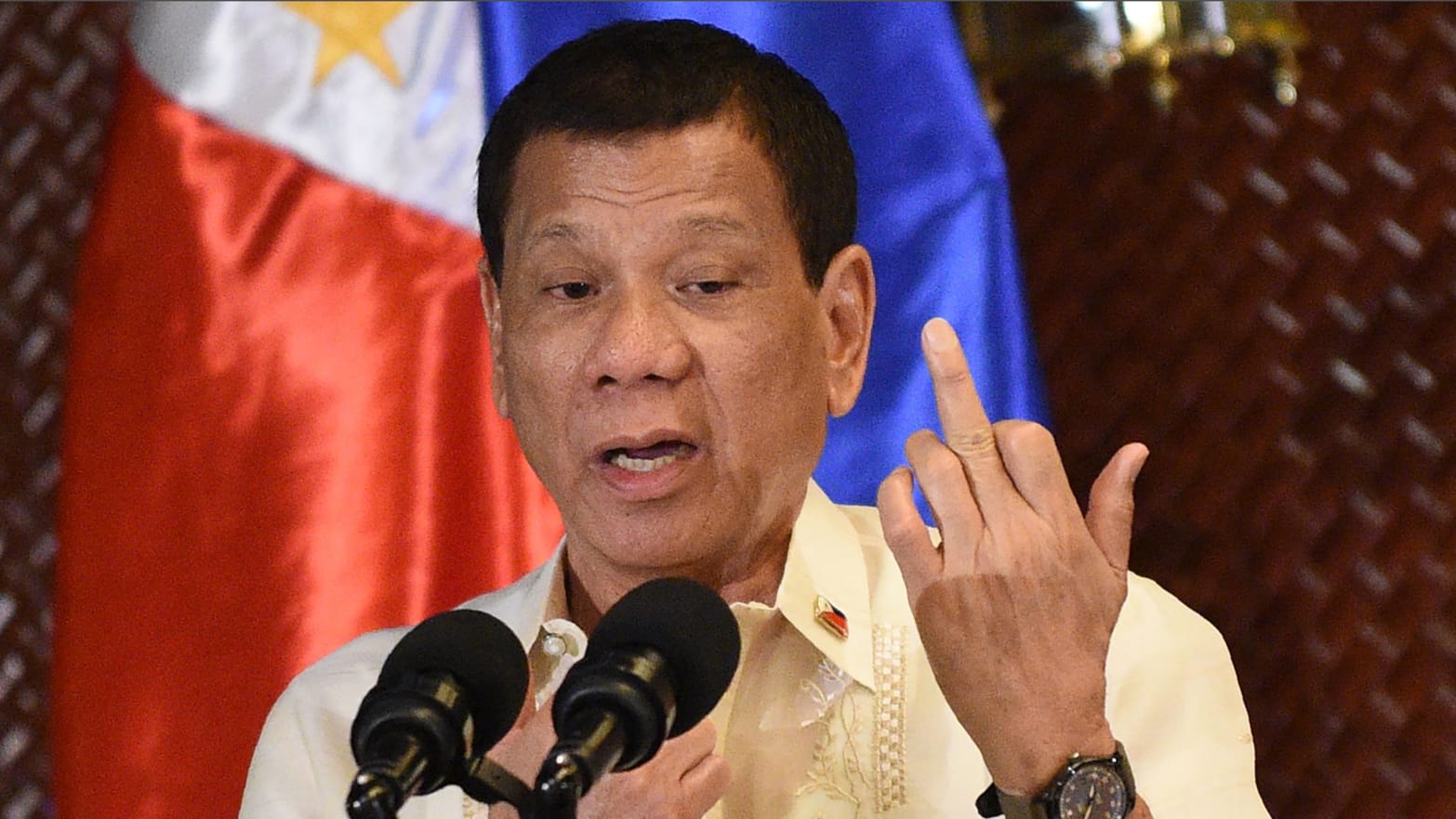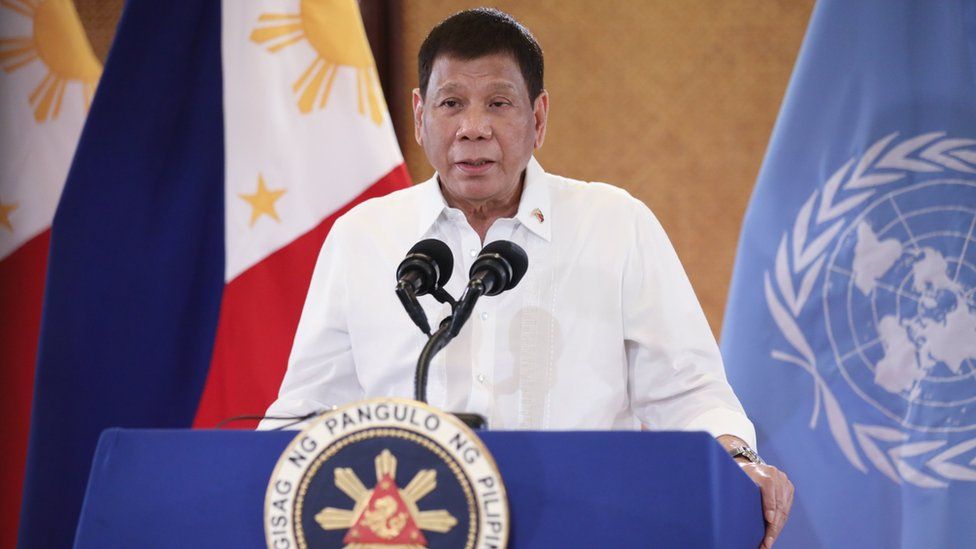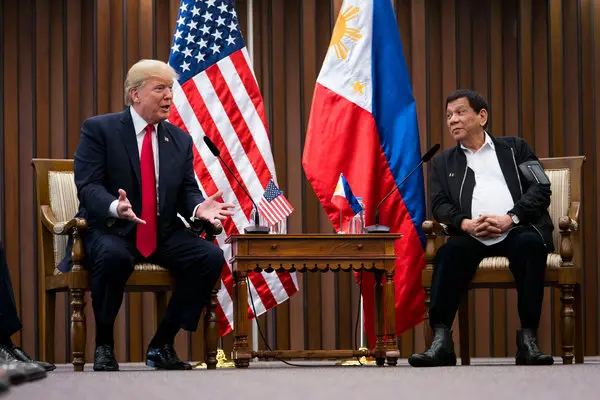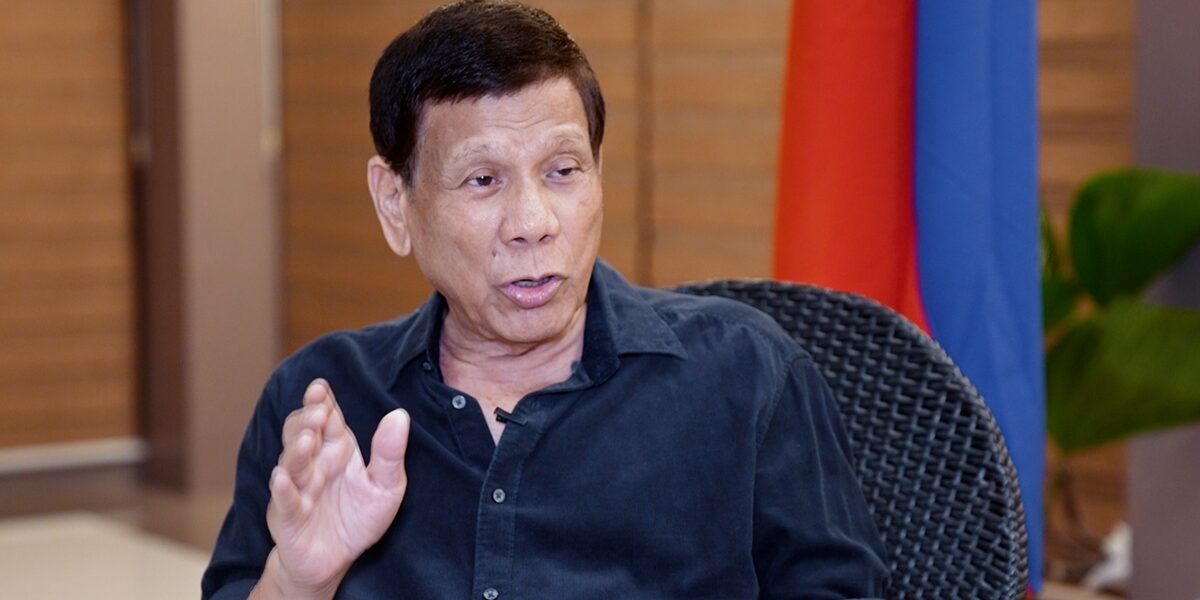Rodrigo Duterte, born on March 28, 1945, in Maasin, Leyte, Philippines, is one of the most polarizing figures in contemporary Filipino politics. Known for his tough-talking, no-nonsense approach, Duterte’s presidency (2016-2022) was marked by controversial policies, particularly his aggressive war on drugs, his stance on foreign policy, and his leadership style that resonated with many Filipinos but drew sharp criticism internationally. This article explores his early life, political career, presidency, and the enduring impact of his leadership on the Philippines.
Early Life and Education

Family and Background
Rodrigo Duterte was born into a politically influential family. His father, Vicente Duterte, was a provincial governor of Davao, while his mother, Soledad Roa, was a school teacher and a civic leader. The family moved to Davao City when Rodrigo Duterte was young, where he spent most of his childhood and early adult life.
Education
Rodrigo Duterte attended the Lyceum of the Philippines University in Manila, where he obtained a degree in political science in 1968. He then pursued a law degree at San Beda College, earning his Juris Doctor in 1972. Duterte passed the bar exam that same year, which marked the beginning of his career in public service.
Early Political Career
Prosecutor and Vice Mayor
Rodrigo Duterte began his political career in Davao City, first serving as a special counsel at the City Prosecution Office from 1977 to 1986. Following the People Power Revolution that ousted Ferdinand Marcos, Duterte was appointed as the officer-in-charge vice mayor of Davao City by President Corazon Aquino in 1986.
Mayoral Tenure
In 1988, Rodrigo Duterte was elected mayor of Davao City, a position he held for over two decades across several non-consecutive terms. As mayor, he earned a reputation for his tough stance on crime, implementing policies that drastically reduced crime rates and transformed Davao into one of the safest cities in the Philippines. His administration was characterized by a combination of strict law enforcement and social programs aimed at addressing the root causes of crime.
Presidential Campaign and Election

The Campaign Trail
Rodrigo Duterte announced his candidacy for the presidency in November 2015, running under the PDP-Laban party. His campaign focused on his record as mayor, particularly his success in reducing crime in Davao City. He promised to implement similar policies nationwide, vowing to eradicate drug-related crime within six months of taking office.
Election Victory
Duterte’s populist rhetoric, anti-establishment stance, and promise of decisive action resonated with a large segment of the Filipino electorate. He won the May 2016 presidential election by a significant margin, securing 39% of the vote in a five-candidate race. His victory was seen as a repudiation of the political establishment and a call for radical change.
The Presidency (2016-2022)
The War on Drugs
One of the hallmarks of Duterte’s presidency was his aggressive war on drugs. Upon taking office, he launched a nationwide campaign aimed at eliminating illegal drug use and trafficking. This policy, known as “Oplan Tokhang,” involved the police conducting house-to-house visits to encourage drug suspects to surrender. However, the campaign quickly became controversial due to allegations of extrajudicial killings, human rights abuses, and the targeting of the poor.
According to official government data, thousands of suspects were killed during anti-drug operations, though human rights groups claim the actual number is much higher. The campaign drew widespread international condemnation, with critics accusing Duterte of violating human rights and undermining the rule of law.
Foreign Policy Shifts
Rodrigo Duterte foreign policy marked a significant departure from his predecessors. He sought to distance the Philippines from its traditional ally, the United States, and pursued closer ties with China and Russia. This shift was evident in his handling of the South China Sea dispute, where he adopted a more conciliatory approach towards China despite an international tribunal ruling in favor of the Philippines’ claims.
Duterte’s pivot towards China included economic agreements and investments, which he argued were essential for the country’s development. However, this approach faced criticism from those who viewed it as compromising the Philippines’ sovereignty and strategic interests.
Economic Policies
On the economic front, Duterte’s administration focused on infrastructure development through the “Build, Build, Build” program. This ambitious initiative aimed to boost economic growth by investing in transportation, energy, and social infrastructure. The program included significant projects such as new airports, highways, and railways, intended to improve connectivity and stimulate economic activity.
Despite these efforts, the Philippine economy faced challenges during Duterte’s presidency, including slowing growth rates, rising inflation, and the impact of the COVID-19 pandemic. The pandemic severely affected the country’s economy, leading to a contraction in GDP and increased unemployment rates.
COVID-19 Pandemic Response
The COVID-19 pandemic posed a significant challenge for Duterte’s administration. The government implemented strict lockdown measures to curb the spread of the virus, but these measures had severe economic and social consequences. Duterte also faced criticism for the slow rollout of vaccines and the handling of the pandemic response, though his administration eventually ramped up vaccination efforts.
Controversies and Criticisms

Human Rights Concerns
Duterte’s presidency was marred by numerous controversies, particularly concerning human rights. The war on drugs, with its associated extrajudicial killings, was the primary source of gengtoto criticism. Human rights organizations and international bodies, including the United Nations, called for investigations into these abuses.
Political Repression
Duterte was also criticized for his approach to political dissent. His administration faced accusations of silencing critics and opposition figures through various means, including legal actions and intimidation. High-profile cases included the arrest of opposition senator Leila de Lima and the revocation of the operating license of the news outlet Rappler.
Media Relations
Duterte had a contentious relationship with the media, often using harsh rhetoric against journalists and media organizations that were critical of his administration. He accused them of bias and spreading false information, leading to a climate of fear and self-censorship among journalists.
Legacy and Impact
Popularity and Support
Despite the controversies, Rodrigo Duterte remained popular among a significant portion of the Filipino population throughout his presidency. Many Filipinos admired his tough stance on crime and perceived him as a decisive leader willing to take bold actions. His populist approach and relatable demeanor resonated with ordinary citizens, solidifying his political base.
Institutional Changes
Rodrigo Duterte presidency brought about significant institutional changes, particularly in law enforcement and governance. His policies and leadership style left a lasting impact on the Philippine political landscape, influencing how future administrations might approach issues of crime, governance, and foreign policy.
Long-Term Effects
The long-term effects of Rodrigo Duterte presidency on the Philippines remain to be fully understood. While his administration implemented substantial infrastructure projects and economic initiatives, the social and human rights costs of his policies continue to be a topic of debate. The next administrations will need to address the issues and divisions that emerged during his tenure.
Conclusion Rodrigo Duterte
Rodrigo Duterte’s presidency was a period of significant change and controversy for the Philippines. His tough-on-crime policies, especially the war on drugs, garnered both substantial domestic support and widespread international condemnation. Duterte’s foreign policy shifts, economic initiatives, and approach to governance have left a complex legacy that will shape the country’s future. As the Philippines moves forward, the impact of Duterte’s leadership will continue to be a critical point of reference in its ongoing political and social evolution.
Read More Article About “Whitney Houston The Bodyguard Soundtrack: A Timeless Musical Legacy“







